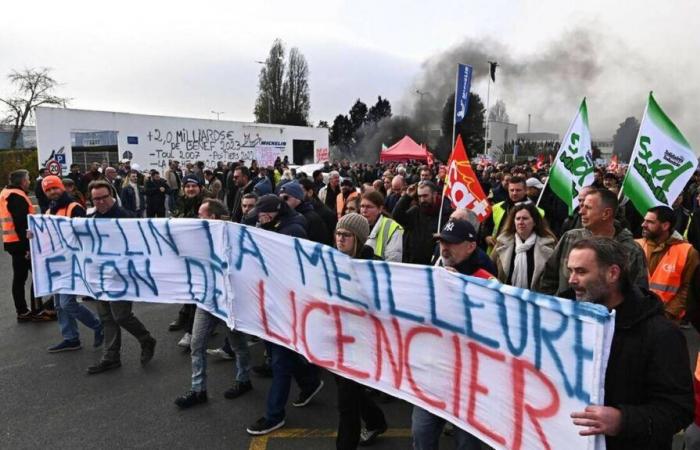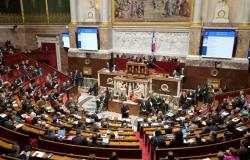In industry as in services, social plans and business failures are increasing. 150,000 direct or indirect jobs are threatened, warns the CGT. Of the “thousands”, can only concede the Minister Delegate for Industry, Marc Ferracci, while 3,600 jobs have already been sacrificed last week at Michelin and Auchan.
The fault of “the supply-side policy in favor of investors and large groups led by Emmanuel Macron” and to “the wage austerity of large companies which is causing demand to collapse while at the same time they have increased their prices to strengthen their profits”, as affirms it to West France Sophie Binet, general secretary of the CGT? Or the consequence of a retention of labor carried out by companies since Covid while waiting for better days, as estimated by the economists of the French Observatory of Economic Conditions (OFCE)? While the president of Michelin, Florent Menegaux, deplores, “the cost of payroll” and the level of compulsory deductions from businesses in France…
Read also : Why social plans risk multiplying… and unemployment rising
Opinions therefore differ on the causes of this social breakdown, which also depend on the situation of each company. But everyone recognizes that part of the answer lies at European level. Because the automotive industry sectors (manufacturers and equipment suppliers) and chemicals in particular are suffering both in France and in Germany from Asian competition, the cost of energy – which has exploded with the war in Ukraine – and the challenge of succeeding in the ecological transition. And the value chains are integrated across several industrial sites spread across Europe, such as in aeronautics with Airbus and its subcontractors.
Defensive or offensive strategy?
So what can be done to avoid the disappearance of an industrial fabric that is so difficult to bring back once it has been relocated, as shown by the example of the active ingredients of strategic drugs during Covid? The French government is calling for strengthening European protectionism.
The European Union has already decided to surcharge electric vehicles manufactured in China. The latter has promised to retaliate on other products, dragging us into a trade war which could well undermine European exports. The latter also risk suffering from the surcharges promised by Donald Trump upon his return to the presidency of the United States.
The European response must therefore also be offensive, for the former president of the European Central Bank Mario Draghi. Its 400-page report on the loss of competitiveness in the European Union (EU), submitted in September, is being examined by member countries. Far from the prevailing austerity measures, it calls for investing nearly 800 billion additional euros per year, or 5% of the EU's GDP, to regain innovation and competitiveness. And to play collectively.
Read also: EDITORIAL. Mario Draghi's alarm
Minister Marc Ferracci wants to believe in a “common European loan”and the establishment by the European Commission in the first half of 2025 of“European legislation on clean industry”. THE “public aid to businesses must be conditional on social and environmental objectivesinsists the general secretary of the CGT Sophie Binet, because Chinese industry is progressing thanks to an increase in quality and a strategy of environmental transformation.”






